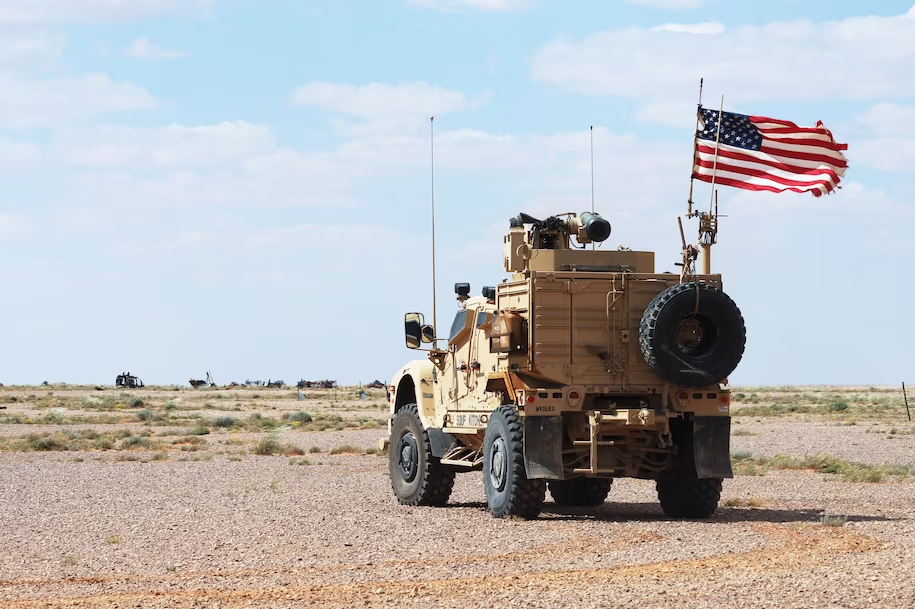Attacks by pro-Iranian militias against US forces in Iraq and Syria escalate as Israeli military operations in the Gaza Strip continue in the after math of operation Tufan Al Aqsa on October 7. The spokesman for the US Department of Defense, General Pat Ryder, announced on 24 October that the United States forces had been subjected to ten attacks in Iraq and three more in Syria since 17 October. A marching attack on US forces at Al-Tanf base in Syria had been thwarted; and last week, an American warship off the coast of Yemen shot down more than a dozen drones and four cruise missiles fired by Iranian-backed Houthis.
Key mechanisms
Under the threat of increased targeting of US forces in the Middle East as a result of Israel’s escalating military operations in the Gaza Strip, the US Administration has begun to take a number of proactive steps to reduce threats, as well as deter Iran and its militias from expanding the war. The most significant steps taken by Washington to this end are:
- Israel’s postponement of a ground invasion: While the US administration publicly declares its opposition to a ceasefire in the ongoing conflict between Israel and Hamas, National Security Council spokesman John Kirby told CNN on October 23, “We don’t think this is the right time for a ceasefire. Israel has the right to defend itself, and it still has work to do to pursue the Hamas leadership.” A New York Times report, published a day earlier, referred to the United States’ request for Israel to refrain from any ground attacks on Gaza, hoping to buy time for hostage negotiations, particularly after two American women launched a humanitarian movement calling for assistance to reach Palestinians in the besieged Gaza Strip. This is confirmed by a report by Axios on 24 October, which indicated that according to two Israeli officials, Israel was prepared to postpone the ground invasion of the Gaza Strip a few days to discuss the release of a large number of hostages by Hamas, which holds more than 200 Israelis given mouting US concerns that a ground invasion could undermine the administration’s main efforts in negotiating a hostage release with Hamas.
- Readiness for widespread conflict in the region: US concerns that Israel’s continued military operations and a ground incursion into Gaza as occurring against the backdrop of an exchange of fire by Israeli forces and Lebanese Iranian-backed Hezbollah at the Lebanese border will serve to expand Israel’s war, and lead to the targeting of Americans and US interests by Iranian-backed militias. U.S. Secretary of State Anthony Blinken and U.S. Defense Secretary Lloyd Austin have voiced concerns about Iran’s proxies targeting US bases and US personnel in the region.
In anticipation of the potential expansion of Israel’s war against Hamas in the Gaza Strip, the US Secretary of Defense ordered the deployment of THAD anti-missile systems and Patriot batteries to increase US military defense capabilities, as well as the possible deployment of US troops in the region to help protect personnel on the ground after two aircraft carriers were sent to the eastern Mediterranean following Operation Tufan Al Aqsa to prevent the regional expansion of the war in Gaza.
- An emphasis on American deterrence capabilities: Amidst increased expectations of pro-Iranian militia attacks, US military officials have stressed US efforts to deter and contain conflict. Austin has previously warned that the US will not hesitate to move militarily against any organization or state seeking to expand the conflict in the Middle East between Israel and Hamas.
An exclusive report by Reuters on 24 October revealed that the US military was taking new steps to protect its forces in the Middle East as the threat of attacks by Iranian-backed militia grows. These actions include increased United States military patrols, restricted access to United States base facilities and increased intelligence collection, through unmanned aerial vehicles and other surveillance operations. Along with enhanced surveillance from guard towers on U.S. military installations, security at base access points, and increased operations to counter unmanned aerial vehicles, missiles and potential missiles against U.S. bases. The report said the U.S. military was leaving open the possibility of evacuating U.S. military families if necessary.
The Commander of the United States Central Command, General Michael Corella, told the Agency that with the increase in the number of attempted and actual attacks on US military bases, the ongoing review of U.S. troop protection measures is increasingly important. The steps already taken to increase troop protection measures, as well as the deployment of additional US military assets in the region, had prevented further casualties among US forces.
- Preparing an evacuation plan for Americans: Consistent with the US administration’s approach to rapidly evacuate Americans from conflict zones in the Middle East, a Washington Post report on Oct 23 revealed the Biden administration’s willingness to potentially evacuate hundreds of thousands of Americans if necessary. According to the US Department of State, some 600 thousand Americans live in Israel and nearly 86 thousand others in Lebanon are of particular concern. The report revealed that an evacuation of this magnitude would be the worst-case scenario and would be one of the most difficult in US history.
Indeed, the US State Department has asked some non-essential American diplomats at the Baghdad Embassy and the Consulate of Erbil to leave Iraq because of increased security threats. She also urged US citizens wishing to leave Lebanon, to do so quickly at a time when commercial flights were still available, because the security situation was unpredictable.
This was is in parallel with the State Department’s demand that US citizens not travel to Iraq for security reasons, following recent attacks on US forces in the region. The Ministry has previously issued a security warning advising Americans abroad to exercise greater caution because of possible violence and increased tensions in various locations around the world.
Renewed controversy
The military escalation between Israel and Hamas, and the repercussions of the Russian-Ukrainian war on 24 February 2022, reignited the debate within the US over whether the Middle East was a strategic priority for the US after years of successive American republican and democratic administration policies to reduce engagement in the region, and to disengage from its crises except those directly affecting American interests.
The current advocate of intense American engagement in the Middle East blamed or threatened American withdrawal from the region. Others argued that the recent escalation between Israel and Hamas ended the “illusion” that the United States was able to extricate itself from the region, which had dominated the U.S. national security agenda for decades. Others say the escalation is a detection of what the region looks like after the US withdrawal. Some advocate that the United States recognize its past policy failures, restrict what American engagement can achieve in the region, and reduce its Middle East policy to the level commensurate with American interests.


